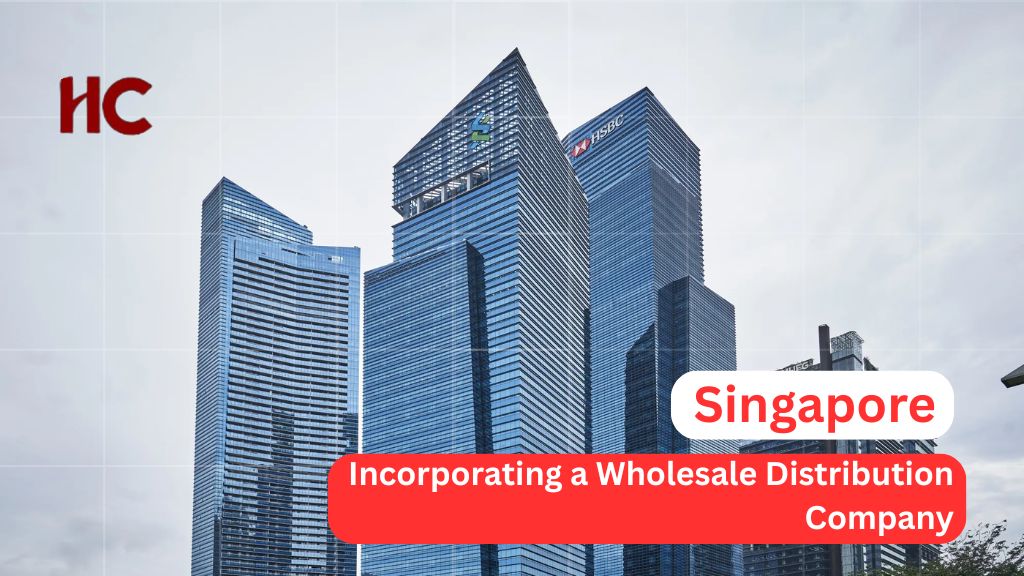What is Transfer Pricing?
Transfer pricing involves determining the value of transactions between related companies, such as a parent and its subsidiary, for goods, services, intellectual property, or financing. The concept ensures that profits are fairly allocated in line with the arm’s length principle—meaning transactions must reflect market conditions as if the parties were unrelated.
For businesses operating across borders, including newly formed entities through company registration in Singapore, it’s essential to understand transfer pricing from the beginning to avoid compliance issues and tax penalties.
Why Transfer Pricing is Important in Singapore
Singapore is a global business hub with thousands of cross-border companies. To maintain transparency and prevent base erosion or profit shifting, the Inland Revenue Authority of Singapore (IRAS) enforces transfer pricing rules aligned with OECD guidelines. These rules are critical for companies involved in related-party transactions across jurisdictions.
Companies—especially those expanding through business incorporation in Singapore—must structure their operations and documentation carefully to reflect fair pricing practices. This becomes even more relevant when engaging in international dealings, where the risk of under- or overpricing can trigger audits.
IRAS Transfer Pricing Guidelines: Overview

IRAS provides clear transfer pricing guidance to ensure that all related-party transactions are properly documented and priced. These include:
- Transactions involving goods and services
- Use or transfer of intellectual property
- Intercompany loans or guarantees
Singapore-based companies are required to adhere to the arm’s length principle and must support their pricing with proper documentation. This includes companies that have recently completed company registration or appointed a company secretary to manage compliance tasks. Early understanding and proper setup help businesses stay compliant right from incorporation.
Also Read: Corporate Service Providers Act 2024 takes effect on 9 June 2025
Transfer Pricing Documentation Requirements
Companies with annual gross revenue exceeding SGD 10 million and related-party transactions exceeding certain thresholds are required to prepare transfer pricing documentation. This includes:
- Company overview and group structure
- Nature and purpose of related-party transactions
- Functional analysis of each party’s contribution
- Benchmarking analysis with independent comparables
Companies managing their accounting and bookkeeping services internally or via third-party providers should ensure these transactions are accurately recorded and accessible. Clear documentation will not only assist with compliance but also make tax filing smoother during the annual cycle.
Related Party Transaction (RPT) Reporting Requirements
Companies in Singapore are required to disclose related-party transactions (RPTs) in their corporate tax filings. This is done through the Related Party Transactions Form (RPT Form), which is mandatory for companies with over SGD 15 million in RPTs during the financial year.
The RPT Form captures details such as the type, nature, and value of transactions between related parties. It’s important that the information reported here is consistent with the supporting documentation submitted under transfer pricing requirements.
Failing to submit accurate RPT disclosures can lead to audits and penalties, which is why it’s advisable for businesses to maintain up-to-date records with the help of experienced professionals who can manage financial reporting efficiently.
Penalties for Non-Compliance

IRAS imposes strict penalties for companies that fail to comply with transfer pricing documentation requirements. Non-compliance may result in:
- Monetary fines (up to SGD 10,000 per offense)
- Transfer pricing adjustments to taxable income
- Additional taxes and interest on unpaid amounts
Additionally, companies may be subject to increased scrutiny in future assessments. For businesses with frequent cross-border transactions, early compliance and proper structuring are crucial to avoid regulatory setbacks.
Maintaining well-organized financial data and clear documentation can make the difference between seamless filing and prolonged audits.
Also Read: Definition of a Public Company Limited by Guarantee
Staying Compliant with Transfer Pricing Rules
To stay compliant, companies should:
- Identify related-party transactions as part of internal reviews
- Maintain contemporaneous documentation that justifies pricing
- Conduct benchmarking studies to compare prices with independent market data
- Review and update documentation annually
- Ensure accuracy when filing tax returns and related-party forms
For businesses new to international operations or those in early growth stages, integrating transfer pricing compliance into routine financial management is essential. Partnering with experienced advisors or outsourcing compliance tasks can provide peace of mind and reduce exposure to risk.
Common Examples Founders Should Watch For
Here are some real-life examples where transfer pricing rules come into play:
-
Payments to HQ for services: When paying for branding, legal, or strategy support, can you show the value of those services? Is the fee aligned with what third-party providers would charge?
-
Importing from your own factory: Are the wholesale prices fair? Or are you inflating or lowering margins to shift profits?
-
Use of intellectual property: Are you paying royalties for software or brand names from a related party? Is the rate consistent with market practices?
-
Intercompany loans: Are you charging interest on loans to subsidiaries? Is the rate in line with commercial lending rates?
These examples highlight the importance of setting and documenting intercompany pricing based on what’s fair and defensible.
Conclusion
Transfer pricing is no longer just a concern for large multinationals. With Singapore’s strong focus on tax transparency and fair profit allocation, companies of all sizes need to understand and follow IRAS guidelines.
Whether you’re a newly incorporated entity or an established business scaling across borders, proactive compliance with transfer pricing rules protects your business from penalties and ensures tax efficiency. Maintaining robust documentation and seeking professional guidance early can significantly improve your company’s risk profile.
Frequently Asked Questions (FAQs)
1. Who needs to prepare transfer pricing documentation in Singapore?
Companies with gross revenue exceeding SGD 10 million and specific related-party transaction thresholds are required to prepare and maintain transfer pricing documentation.
2. What types of transactions are covered by IRAS transfer pricing guidelines?
IRAS covers transactions involving goods, services, loans, intellectual property, and guarantees between related entities.
3. What is the arm’s length principle?
It requires related-party transactions to be priced as if the parties were unrelated, ensuring fair and market-based pricing.
4. When is the Related Party Transactions (RPT) Form required?
The RPT Form is mandatory for companies with more than SGD 15 million in related-party transactions during the financial year.
5. Can a small business be subject to transfer pricing rules?
Yes, if it crosses the prescribed thresholds or engages in cross-border transactions with related parties.
6. How long must a company retain transfer pricing documentation?
Transfer pricing documents must be retained for at least five years from the end of the basis period in which the transaction took place.
7. Are there exemptions from preparing TP documentation?
Yes. Certain domestic transactions and routine support services may be exempt if they meet IRAS exemption criteria.
8. What happens if documentation is not submitted on time?
Failure to submit documentation when requested can lead to penalties, tax adjustments, or increased audit risk.
9. Is benchmarking analysis mandatory?
While not explicitly mandatory, it is considered best practice to support the arm’s length nature of the pricing with comparables.
10. Does IRAS provide any guidance for SMEs?
Yes. IRAS offers simplified compliance options for smaller entities and routine transactions to reduce the compliance burden.


